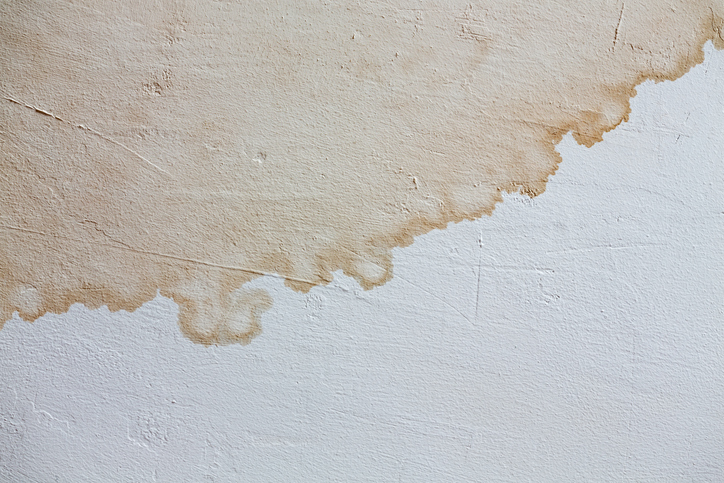
A roof leak doesn’t just drip water, it drips stress. One small stain on the ceiling can trigger a flood of worry: Is there mold? How much will this cost? What else might be damaged? It’s more than a home repair—it’s a mental weight.
That’s where waterproofing comes in. It’s not just a fix; it’s a power move that puts you back in control. Instead of reacting to damage, you’re preventing it. You’re protecting your peace of mind, not just your walls and floors. Waterproofing doesn’t scream luxury, but the calm and confidence it brings? That’s priceless.
How Do Recurring Roof Leaks Influence a Homeowner’s Stress and Decision Making?
You’d think a roof leak would immediately trigger urgency and proble
m-solving. But for many homeowners, it sets off a cycle of hesitation, patchwork fixes, and stress that builds over time.
When a leak becomes recurring, it doesn’t just damage drywall—it erodes confidence. The home, which should be a sanctuary, starts to feel unreliable. Instead of feeling in control, the homeowner begins reacting, often under pressure, and often too late.
Psychological patterns linked to persistent leaks:
- Chronic low-level stress
The “what if it rains again?” worry is always there—lingering and distracting, even on sunny days. - Decision fatigue
Each leak demands evaluation: Do I fix it myself? Call someone? Replace the roof? The repeated questioning drains mental energy. - Procrastination and avoidance
Fear of cost or uncertainty about the solution leads to delay, which only worsens the issue. - Sense of failure
Especially among hands-on homeowners, leaks can feel like a personal shortcoming—like the house is “getting away from them.” - Spiral thinking
A leak isn’t just a leak anymore—it’s the beginning of mold, structural rot, insurance issues, and thousands in repairs. Even if those outcomes don’t occur, the fear of them is real.
Leaks don’t just stain ceilings—they stain peace of mind. And unless addressed head-on, they can cause homeowners to second-guess every decision, creating a pattern of reaction instead of resolution.
What Emotional Impact Does a Neglected Roof Leak Have on Home Perception?
A home is more than a structure. It’s a place of comfort, status, memory, and identity. So when water starts intruding from above, it reshapes how we feel about the space in surprisingly deep ways.
Even a small, manageable leak can slowly transform a once-loved corner of the house into a source of anxiety or embarrassment. And the longer it goes unaddressed, the more it alters perception—of the room, of the home as a whole, and of the homeowner’s role in maintaining it.
Emotional shifts that accompany neglected leaks:
- Loss of trust in the home
A leaking roof makes a home feel vulnerable. It breaks the illusion that the space is perfectly safe and sound. - Aesthetic disruption
Stains, smells, or warped materials subtly chip away at how attractive or inviting a space feels—even to the people living in it. - Embarrassment or shame
Homeowners often avoid hosting guests when they know the ceiling looks compromised or a corner is catching rainwater in a pan. - Attachment erosion
Over time, the affection for the home diminishes. People start saying things like “we really need to fix this place” instead of “we love this home.” - Avoidance behavior
Rooms affected by leaks may go unused—not because they’re unusable, but because they represent something unresolved or stressful.
Water may be clear, but its psychological effect is muddy. A neglected roof leak doesn’t just seep into drywall—it seeps into a homeowner’s pride, confidence, and comfort within their own space.
Why Do Homeowners Delay Waterproofing Even When Leaks are Visible?
It’s easy to assume that people delay waterproofing because of cost. And yes, budget plays a role. But the psychology runs deeper than dollars—it’s about timing, uncertainty, and emotional overwhelm.
Most homeowners don’t ignore leaks because they don’t care. They do it because the act of waterproofing feels final, technical, and intimidating. It involves terms they don’t fully understand, contractors they don’t know how to choose, and a level of commitment that feels scary—especially when they’re unsure of the scope.
Common psychological reasons behind delay:
- Fear of “opening a can of worms”
Homeowners worry that a contractor will discover deeper, more expensive issues—so they avoid starting at all. - Minimization
“It only leaks during big storms” or “It’s just a small drip” helps justify inaction. - Hope-based denial
Belief that it “won’t happen again,” especially after temporary fixes or long stretches of dry weather. - Overwhelm paralysis
Not knowing who to call, what to ask for, or how to compare quotes leads to avoidance. - Competing priorities
Homeowners often prioritize visible upgrades (like kitchen renovations) over behind-the-scenes fixes like waterproofing.
Ironically, the longer waterproofing is delayed, the more expensive and invasive it becomes. But emotionally, delay feels easier—at least in the short term.
How Does Proactive Waterproofing Reflect a Homeowner’s Mindset Toward Home Care?
When a homeowner chooses to waterproof proactively—not after the third leak, but before the first real one—they’re not just protecting their ceiling. They’re exercising control, responsibility, and foresight.
Waterproofing is one of those rare home decisions that prevents more than it fixes. It reflects a mindset of care, readiness, and respect for the home as a long-term investment—not just a place to live.
What proactive waterproofing communicates about a homeowner:
- Future-focused thinking
They’re not just reacting to problems—they’re preventing them before they begin. - High personal standards
Proactive care reflects pride in ownership and a commitment to excellence. - Emotional confidence
They’re addressing discomfort, not tolerating it—choosing peace over low-grade worry. - Financial wisdom
Investing in waterproofing is often cheaper than water damage restoration—smart owners know this. - Respect for wellness
Waterproofing prevents mold, mildew, and poor air quality—meaning the home is truly safer for everyone inside.
More than a home improvement, waterproofing is a statement of control. It tells the world—and the homeowner themselves—that this house is protected, respected, and prepared for what’s ahead.
When You Stop the Leak, You Take Back the Narrative
Every homeowner has that moment—the “uh-oh” drip, the spreading stain, the dreaded pitter-patter in the attic during a storm. But what happens next is what defines the homeowner: do you wait and worry, or do you fix and fortify?
Roof leaks carry emotional weight. They tug at your sense of order, your feelings about your home, and your ability to stay on top of things. But waterproofing? That’s not just a fix—it’s a reclaiming. A quiet declaration that you won’t be caught off guard again.
So if you’ve been staring at that spot on the ceiling, wondering if it’s “bad enough” to deal with—let this be your sign. The smartest, most empowered homeowners don’t wait for disaster. They act before the storm.
Make Peace of Mind Permanent
At Eason Roofing, we believe that every home deserves more than a temporary patch. Our expert waterproofing solutions are designed to protect your home—and your peace of mind—for years to come. Schedule your waterproofing consultation today and take back control, one leak-proof layer at a time.





